 One hears the intense and physical music of Scúru Fitchádu and it is perceived that it comes from the entrails, populated by a whirlwind of emotions that long people the imaginary of Marcus. Why have not they been patented before? "Every day I think about it," says the 37-year-old musician. "Why did not this come sooner if it always lived within me? Do not know. But glad it came out now. A few years ago maybe it was too soon and I did not have the same kind of answers I'm getting now.
One hears the intense and physical music of Scúru Fitchádu and it is perceived that it comes from the entrails, populated by a whirlwind of emotions that long people the imaginary of Marcus. Why have not they been patented before? "Every day I think about it," says the 37-year-old musician. "Why did not this come sooner if it always lived within me? Do not know. But glad it came out now. A few years ago maybe it was too soon and I did not have the same kind of answers I'm getting now.
Stages
02.04.2019 | by Vítor Belanciano
 Even more important are the studies by Lévy-Strauss; by members of the Latin American “decolonality” group such as Eduardo Viveiros de Castro, Walter Mignolo and Aníbal Quijanol; by anthropologists such as Aparecida Vilaça, Yvone de Freitas Leite, Elisa Loncon Antileo and Pedro Niemeyer Cesarino; and by indigenous leaders such as Ailton Krenac. The latter both denounce the extermination of native languages and also study them, trying to record them as far as is still possible. With this intellectual investment they recover the languages’ memory and, with it, a pre-colonial cultural universe.
Even more important are the studies by Lévy-Strauss; by members of the Latin American “decolonality” group such as Eduardo Viveiros de Castro, Walter Mignolo and Aníbal Quijanol; by anthropologists such as Aparecida Vilaça, Yvone de Freitas Leite, Elisa Loncon Antileo and Pedro Niemeyer Cesarino; and by indigenous leaders such as Ailton Krenac. The latter both denounce the extermination of native languages and also study them, trying to record them as far as is still possible. With this intellectual investment they recover the languages’ memory and, with it, a pre-colonial cultural universe.
To read
30.03.2019 | by António Pinto Ribeiro
 Whether in terms of its officially ensconced denial or the radical geopolitical reformulation of Portugal after decolonization, the Colonial War remains historiographically unresolved. The experience of participation in the war is one of the most repressed and complex, but also one of the most tragic, events of Portuguese contemporary life, and it continues to resonate today.
Whether in terms of its officially ensconced denial or the radical geopolitical reformulation of Portugal after decolonization, the Colonial War remains historiographically unresolved. The experience of participation in the war is one of the most repressed and complex, but also one of the most tragic, events of Portuguese contemporary life, and it continues to resonate today.
To read
30.03.2019 | by Margarida Calafate Ribeiro
 I decided to take photos when I understood that the opinions of my family made no sense anymore. But my mum wouldn't allow me, telling me "girls don't take photos". So I did it unbeknownst to her anyway. I had found a spare camera and I used to leave it at home so that my mum would think I left my camera home...
I decided to take photos when I understood that the opinions of my family made no sense anymore. But my mum wouldn't allow me, telling me "girls don't take photos". So I did it unbeknownst to her anyway. I had found a spare camera and I used to leave it at home so that my mum would think I left my camera home...
Face to face
29.03.2019 | by Sinem Taş
 The work suggests that another person’s perspective, and their particular capacities, affects the inherited vision. This vision, diminished or amplified, can cloud, obscure, or deform the receiving view; but it may at the same time provoke the heir to explore the ways that their perspective belongs neither only to them, nor any longer only to the bequeather. And this question, which starts with recognising this inheritance, can also be the starting point for other visions.
The work suggests that another person’s perspective, and their particular capacities, affects the inherited vision. This vision, diminished or amplified, can cloud, obscure, or deform the receiving view; but it may at the same time provoke the heir to explore the ways that their perspective belongs neither only to them, nor any longer only to the bequeather. And this question, which starts with recognising this inheritance, can also be the starting point for other visions.
To read
23.03.2019 | by Fátima da Cruz Rodrigues
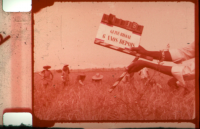 This article reads Amílcar Cabral’s much under-studied early soil science as a body of work not dissociable from his project of liberation struggle against Portuguese colonialism in Guinea-Bissau and Cape Verde. Drawing on research situated within an artistic practice, the article explores the definitions of soil and erosion that Cabral developed as an agronomist, as well as his reports on colonial land exploitation and analysis of the trade economy, to unearth his double agency as a state soil scientist and as a ‘seeder’ of African liberation.
This article reads Amílcar Cabral’s much under-studied early soil science as a body of work not dissociable from his project of liberation struggle against Portuguese colonialism in Guinea-Bissau and Cape Verde. Drawing on research situated within an artistic practice, the article explores the definitions of soil and erosion that Cabral developed as an agronomist, as well as his reports on colonial land exploitation and analysis of the trade economy, to unearth his double agency as a state soil scientist and as a ‘seeder’ of African liberation.
Afroscreen
28.02.2019 | by Filipa César
 Women come together to perform Tufo wearing capulanas and bright-coloured shirts. Their faces are covered with mussiro, a type of facial cream used by Macua women. They tie head wraps and use jewellery, necklaces and bracelets for an extravagant finishing touch.
Women come together to perform Tufo wearing capulanas and bright-coloured shirts. Their faces are covered with mussiro, a type of facial cream used by Macua women. They tie head wraps and use jewellery, necklaces and bracelets for an extravagant finishing touch.
Stages
27.02.2019 | by Hélio Nguane
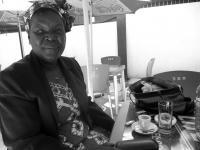 Paulina Chiziane (Majacaze, 1955) is surely one of the most prominent figures of current Mozambican literature, and not just that. She is an essential reference for the country’s feminist movements, a woman who confronted particularly conflictual aspects of African cultures in her literary works with startling intensity, developing themes that no one else wants to hear or discuss, not in the private sphere, much less in the public or political spheres. These are silenced themes, taboos, especially painful, pending and unresolved subjects, such as the Mozambican civil war, women’s rights in polygamy and black magic.
Paulina Chiziane (Majacaze, 1955) is surely one of the most prominent figures of current Mozambican literature, and not just that. She is an essential reference for the country’s feminist movements, a woman who confronted particularly conflictual aspects of African cultures in her literary works with startling intensity, developing themes that no one else wants to hear or discuss, not in the private sphere, much less in the public or political spheres. These are silenced themes, taboos, especially painful, pending and unresolved subjects, such as the Mozambican civil war, women’s rights in polygamy and black magic.
Face to face
25.02.2019 | by Doris Wieser
 The distance between the writer and the traumatic reality about which they write determines the result of literary attempts to convey the experience of violence. Nevertheless, there are similarities between the artistic representations of memory offered by direct witnesses of events and those re-elaborated by their descendants (those we call post-memories).
The distance between the writer and the traumatic reality about which they write determines the result of literary attempts to convey the experience of violence. Nevertheless, there are similarities between the artistic representations of memory offered by direct witnesses of events and those re-elaborated by their descendants (those we call post-memories).
To read
24.02.2019 | by Felipe Cammaert
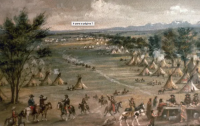 Research finds killing of native people indirectly contributed to a colder period by causing deaths of around 56 million by 1600. European colonization of the Americas resulted in the killing of so many native people that it transformed the environment and caused the Earth’s climate to cool down, new research has found. Settlers killed off huge numbers of people in conflicts and also by spreading disease, which reduced the indigenous population by 90% in the century following Christopher Columbus’s initial journey to the Americas and Caribbean in 1492.
Research finds killing of native people indirectly contributed to a colder period by causing deaths of around 56 million by 1600. European colonization of the Americas resulted in the killing of so many native people that it transformed the environment and caused the Earth’s climate to cool down, new research has found. Settlers killed off huge numbers of people in conflicts and also by spreading disease, which reduced the indigenous population by 90% in the century following Christopher Columbus’s initial journey to the Americas and Caribbean in 1492.
To read
22.02.2019 | by Oliver Milman
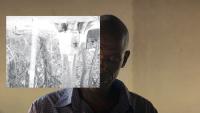 The book condenses some important aspects of the project. Its authors are not made explicit, pointing to the collaborative nature of this effort of rescue and rereading. But it also ends up suggesting that this living process of documenting complicates the very notion of authorship as a sovereign gesture with the authority to determine how images are exposed (or concealed), or to guide interpretation and impose meaning.
The book condenses some important aspects of the project. Its authors are not made explicit, pointing to the collaborative nature of this effort of rescue and rereading. But it also ends up suggesting that this living process of documenting complicates the very notion of authorship as a sovereign gesture with the authority to determine how images are exposed (or concealed), or to guide interpretation and impose meaning.
Afroscreen
12.02.2019 | by Miguel Cardina
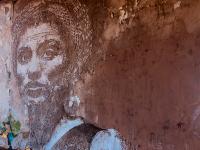 The neologism “artivism” was coined in the 1960s to describe demonstrations against the Vietnam War, as well as student movements and counter-culture. The situationist Guy Debord theorized this conjuncture in his book “The Society of the Spectacle” (1967), in which he argued that it was necessary to overcome existing modes of politics and art, to sabotage the demands of capitalism and to find new modes of art and life. The term reappeared only in the mid-1990s, with the internet revolution, as part of a critical lexicon to describe not only the practice of political art, but also to interrogate what counted as politics and art. In that context, the fundamental question was the transformation of capital into a spectacle, and subsequent artistic problematics.
The neologism “artivism” was coined in the 1960s to describe demonstrations against the Vietnam War, as well as student movements and counter-culture. The situationist Guy Debord theorized this conjuncture in his book “The Society of the Spectacle” (1967), in which he argued that it was necessary to overcome existing modes of politics and art, to sabotage the demands of capitalism and to find new modes of art and life. The term reappeared only in the mid-1990s, with the internet revolution, as part of a critical lexicon to describe not only the practice of political art, but also to interrogate what counted as politics and art. In that context, the fundamental question was the transformation of capital into a spectacle, and subsequent artistic problematics.
To read
12.02.2019 | by Fernanda Vilar
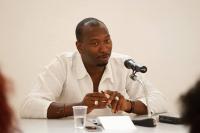 These latest events strip bare the racist system in which we live, enforced by the police and through normalised acts of violence against black people of all ages and sexes, and with the continued impunity of those responsible, reaching a level that can no longer be tolerated.
These latest events strip bare the racist system in which we live, enforced by the police and through normalised acts of violence against black people of all ages and sexes, and with the continued impunity of those responsible, reaching a level that can no longer be tolerated.
Mukanda
25.01.2019 | by vários
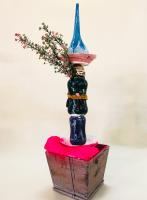 No centro de todos os poderes imperialistas, Portugal incluído, existiu sempre uma incrível habilidade para esquecer, uma fábrica incrível de esquecimento. A tarefa dos artistas, escritores e pensadores é de analisar este processo de ‘lembrar e esquecer’.
No centro de todos os poderes imperialistas, Portugal incluído, existiu sempre uma incrível habilidade para esquecer, uma fábrica incrível de esquecimento. A tarefa dos artistas, escritores e pensadores é de analisar este processo de ‘lembrar e esquecer’.
I'll visit
23.01.2019 | by George Shire
 Movement is at the core of life, not necessarily space. If it is translated into space, this is done by means of space being perceived as movement. Therefore, we are facing two completely opposing philosophies. From this point of view, the African movement philosophy, the pre-colonial one, is similar to a rationale specific to the digital world, according to which, fundamentally, one seeks to create connectivity, using networks, instead of tracing categories, classifying, establishing hierarchies and limiting movement.
Movement is at the core of life, not necessarily space. If it is translated into space, this is done by means of space being perceived as movement. Therefore, we are facing two completely opposing philosophies. From this point of view, the African movement philosophy, the pre-colonial one, is similar to a rationale specific to the digital world, according to which, fundamentally, one seeks to create connectivity, using networks, instead of tracing categories, classifying, establishing hierarchies and limiting movement.
Face to face
21.01.2019 | by António Guerreiro
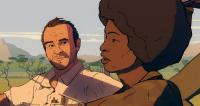 Em Mais um Dia de Vida, encontramos uma estética hollywoodesca, de construção e celebração do herói Kapuscinski. Terá a mais valia de dar a conhecer a outros públicos (em particular ao mais jovem, pelo estilo de filme de ação) o xadrez político regional e internacional que se jogava em Angola. Porém, ao centrar a narrativa de forma tão redutora na figura do ‘herói jornalista’, o filme não responde à evocação de Carlota, ficando suspenso num jogo dúbio de uso (e abuso) da memória e do esquecimento.
Em Mais um Dia de Vida, encontramos uma estética hollywoodesca, de construção e celebração do herói Kapuscinski. Terá a mais valia de dar a conhecer a outros públicos (em particular ao mais jovem, pelo estilo de filme de ação) o xadrez político regional e internacional que se jogava em Angola. Porém, ao centrar a narrativa de forma tão redutora na figura do ‘herói jornalista’, o filme não responde à evocação de Carlota, ficando suspenso num jogo dúbio de uso (e abuso) da memória e do esquecimento.
Afroscreen
21.01.2019 | by Hélia Santos
 “Palimpsest of the Africa museum” documents the moving of the Africa museum as an esthetic mourning process, shows the insanity of the alterations and reveals through the eyes of the Belgian African Diapsora what the renovation really puts at stake: the decolonization of the Self.
“Palimpsest of the Africa museum” documents the moving of the Africa museum as an esthetic mourning process, shows the insanity of the alterations and reveals through the eyes of the Belgian African Diapsora what the renovation really puts at stake: the decolonization of the Self.
Afroscreen
11.01.2019 | by Matthias De Groof
 This reusing of the past requires us to reflect on how traumatic histories are collectively absorbed, and on how histories can be revised, even distorted, when they are reread. When the past is reused, its image is reinscribed through the prism of a particular, usually other, ideology with the intention of evoking a particular past and creating its counter image. This manoeuvre often has hegemonic ambitions, and aims to impact public opinion.
This reusing of the past requires us to reflect on how traumatic histories are collectively absorbed, and on how histories can be revised, even distorted, when they are reread. When the past is reused, its image is reinscribed through the prism of a particular, usually other, ideology with the intention of evoking a particular past and creating its counter image. This manoeuvre often has hegemonic ambitions, and aims to impact public opinion.
To read
02.01.2019 | by Roberto Vecchi
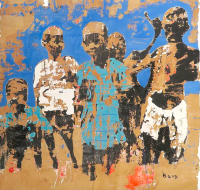 In his view, “either a society is racist or it is not” and “colonial racism is no different from other racisms.” It is when he tries to explain a key idea and expose a scandal that his poetic and rhetorical prose unfolds. Besides, for him, the liberation of the native means rejecting this interdicted world and embracing the “self” denied by the colonizer, who sees him as disorganised and docile: “The native is a being hemmed in; apartheid is simply one form of the division into compartments of the colonial world.
In his view, “either a society is racist or it is not” and “colonial racism is no different from other racisms.” It is when he tries to explain a key idea and expose a scandal that his poetic and rhetorical prose unfolds. Besides, for him, the liberation of the native means rejecting this interdicted world and embracing the “self” denied by the colonizer, who sees him as disorganised and docile: “The native is a being hemmed in; apartheid is simply one form of the division into compartments of the colonial world.
Mukanda
01.01.2019 | by Anne Mathieu
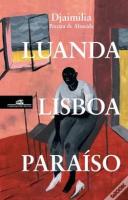 What Djaimilia Pereira de Almeida writes can be understood as a powerful transformation tool regarding the Portuguese human landscape. With it, the painful fragments of a history made up of frustrations and disappointments, of ruptures and withdrawals and of ambiguous felling are not erased, instead they are reunited in a healing coexistence.
What Djaimilia Pereira de Almeida writes can be understood as a powerful transformation tool regarding the Portuguese human landscape. With it, the painful fragments of a history made up of frustrations and disappointments, of ruptures and withdrawals and of ambiguous felling are not erased, instead they are reunited in a healing coexistence.
To read
01.01.2019 | by Inocência Mata